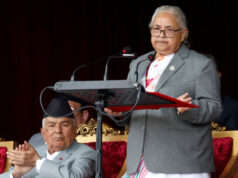Is India on the path to gradually rendering irrelevant the Indus Waters Treaty? India recently rejected a ruling by the Hague-based tribunal, the Court of Arbitration, calling its competency in question to decide on Pakistan’s complaint about the Ratle and Kishenganga hydropower projects.
In recent years, more and more voices in India have been demanding that the Indus Waters Treaty be re-negotiated or failing that, to withdraw from the treaty. There’s speculation that the recent ruling by the Permanent Court of Arbitration could push India to unilaterally address what it feels are the many inequalities of the treaty.
India’s point was that a neutral expert was competent enough to decide on Pakistan’s objections to both projects, but the Hague-based tribunal decided otherwise. This would have added to India’s sense that more than six decades ago when the treaty was signed, this country did not get its due with Pakistan getting more water despite being much smaller.
It allocated the three western rivers—Indus, Chenab, and Jhelum—to Pakistan for unrestricted use, barring certain non-consumptive, agricultural, and domestic uses by India, and the three Eastern rivers—Ravi, Beas, and Sutlej—were allocated to India for unrestricted usage.
This means that 80% of the share of water went to Pakistan while leaving the rest 20% of water for use by India.
Signs that India was moving to ensure its interests were evident in January this year when Delhi issued a notice to Islamabad calling for modifications to the treaty, and sought a response in 90 days. That expired at the end of April with Islamabad ignoring the notice.
Experts believe that India has gained nothing by observing the treaty: most hydropower projects in Jammu and Kashmir have been delayed and seen enormous cost escalation because of Pakistan’s objections and legal manipulations. The treaty was negotiated at a time when India lacked capacity and expertise, which Pakistan was able to take advantage of. Now, it would seem the gloves are coming off.




